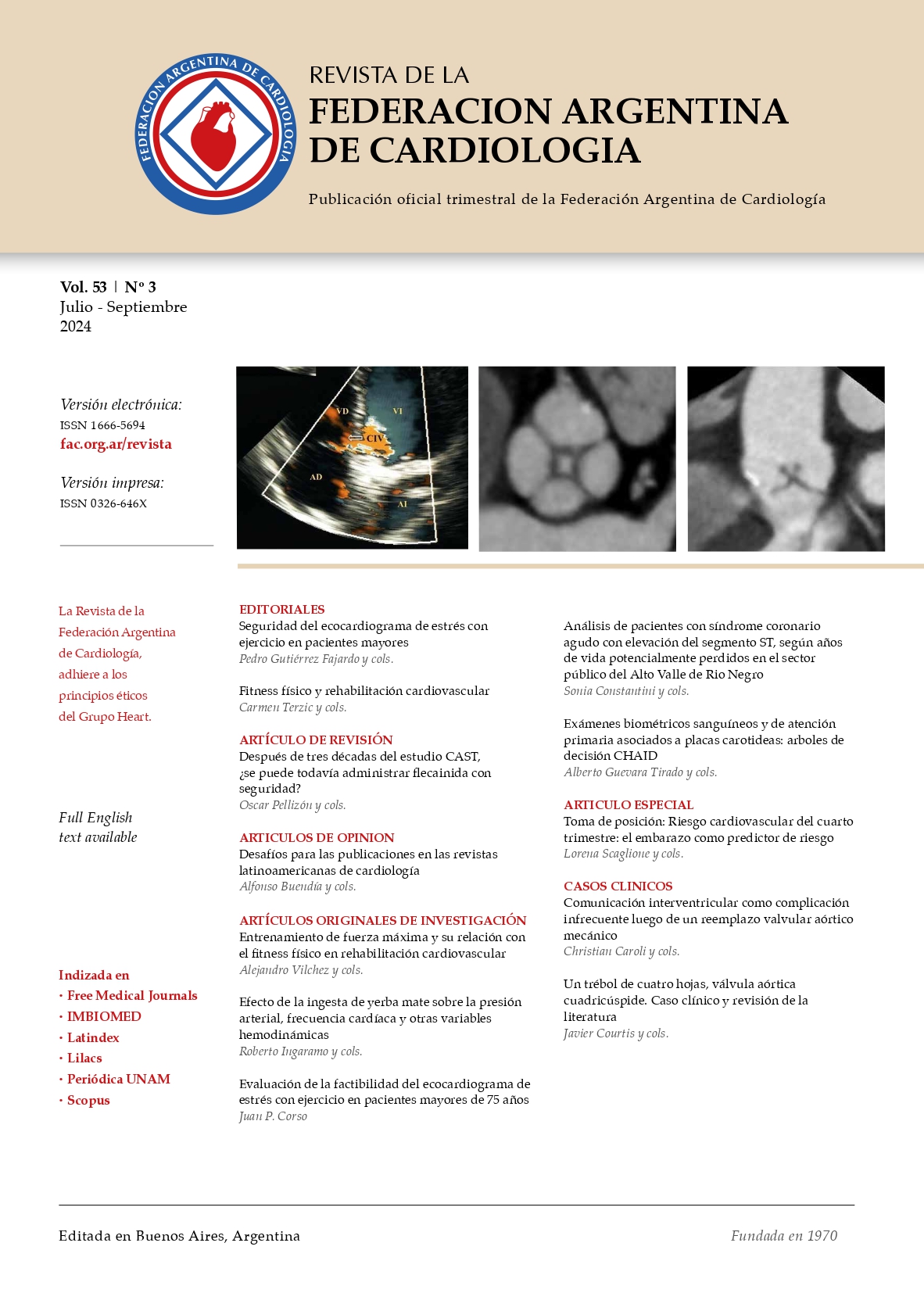Maximal strength training and its relationship with physical fitness in cardiovascularrehabilitation
Keywords:
Resistance training, coronary heart disease, muscle strength, cardiorespiratory fitness, rehabilitationAbstract
Introduction: muscular strength is related to physical independence. It is a mortality predictor. Its training increases strength, endurance and physical independence, which is why it is used in modern cardiovascular rehabilitation. The necessary intensity is a controversial issue. Objectives: to evaluate the safety and effect of maximal strength training and its relationship with motor abilities (fitness). Methods: twenty-three patients were prospectively included. After an adaptation period, maximal strength levels and their relationship to four fitness parameters were evaluated and compared after 12 weeks of training. Maximal strength was considered as the sum of the maximum
with which they could perform 4 movements in 4 basic exercises. The physical abilities were: 6-min walk, climbing a flight of 10 steps, standing and sitting 10 times and handgrip. Paired t-test and Pearson correlation were performed with the Jamuvi statistic. Results: twenty-two patients were men, 21 had coronary artery disease and 2 dilated cardiomyopathy,
5 of them had severe deterioration of ejection fraction. The average load in the 4 exercises was 1623 Newton
at the beginning and 2670 Newton at 12 weeks (64% increase, p < .005). All physical abilities were
significantly correlated with strength. There were no complications during the training. Conclusions: maximal strength training significantly increased strength at 12 weeks, accompanied by a direct effect on fitness parameters and without complications, making it a safe therapy in these patient.



